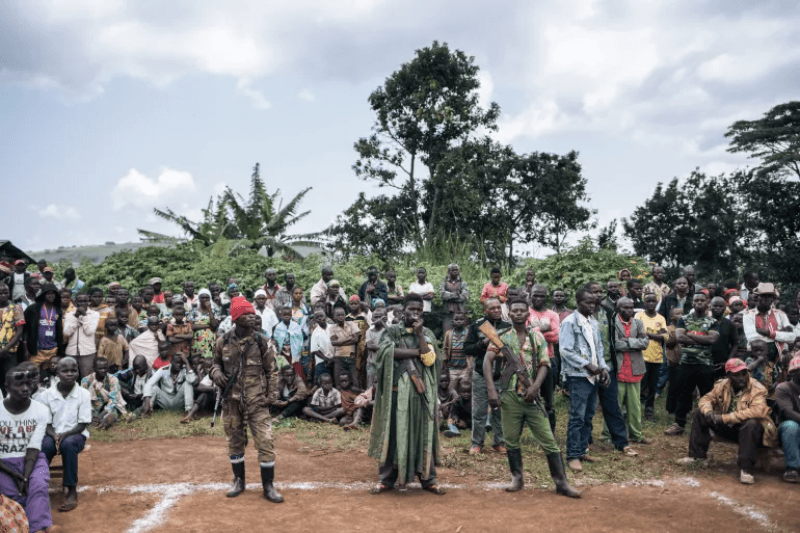A government official stated that on Thursday battles between local rebels and pro-government militias in eastern Democratic Republic of the Congo (DRC) caused the lives of sixteen people. Occurring in Rutshuru territory, North Kivu province, the violence marked the most recent breach of a truce meant to assist millions of displaced people in the area.
The conflicts included indigenous Wazalendo warriors, who often worked with Congolese security forces, and the M23 rebel organization, allegedly supported by surrounding Rwanda. Confirming the events was Rutshuru administrative administrator Isaac Kibira “The Wazalendo young attacked the M23 rebel position, and sadly seven civilians died,” Kibira said. Nine people died when a second incident set a car ablaze.
Emphasizing the extreme effect of the continuous conflict on innocent people, authorities have underlined that none of the dead residents participated in the combat.
These horrific events have rekindled questions regarding the viability of a ceasefire put in place on August 4, meant to stop hostilities and enable relief to millions of people in need. Several cease-fires between government and rebel groups have historically been fleeting and usually resulted in more violence.
of 120 armed groups fighting for control of the gold-rich Eastern Democratic Republic of the Congo have long tormented the country. Often involved in atrocities, these organizations help to cause one of the biggest humanitarian problems worldwide. More than 7 million people are displaced in the area right now, many of whom are still unreachable to relief groups.
One of the most active rebel groups in the region, the M23 became well-known more than ten years ago when its fighters captured Goma, the biggest city in eastern DRC, close to the border of Rwanda. The name of the group comes from a peace accord signed on March 23, 2009, which the rebels assert the Congolese government neglected.
Keep Reading
Separate development: On Thursday, Governor Jean-Jacques Purusi Sadiki of South Kivu province declared the suspension of all mining operations lifted. This ruling almost a month after the ban was enforced to “restore order” in the area rich in resources. Following negotiations with mining businesses, the ban’s removal orders them to register tax returns and sign a promise of openness inside the mining industry.
The mining business of Eastern DRC, especially with regard to gold, has long been a cause of conflict. Many Chinese businesses operate in the area, where attacks on mining sites are regular. Six Chinese workers and two Congolese troops were killed last month during a militia attack on a gold mine in Ituri province.

